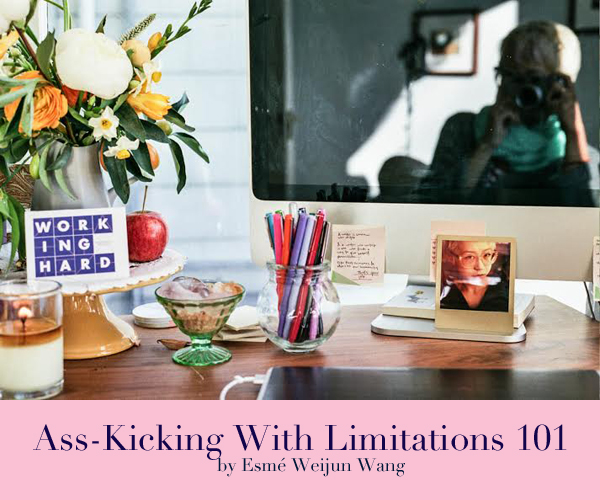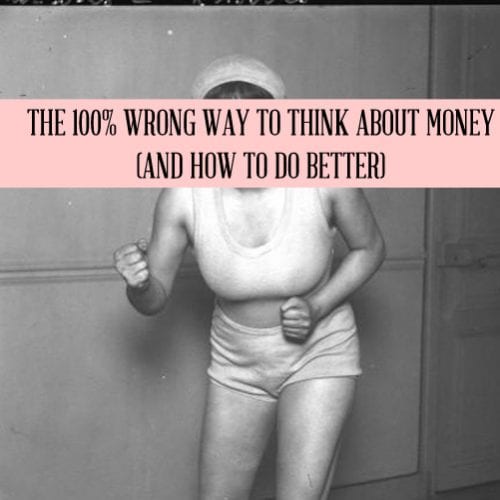This is a guest post by Bullish Conference speaker Esmé Weijun Wang.
Any advice/resources about navigating disability once you get into the workplace? I’m just about to graduate uni and start looking for jobs, and am worried about when (or whether) I should disclose my bipolar.
First of all, congratulations. And good on you for carefully considering the impact your diagnosis may have on your work life.
On paper, and in person, I’m a damn delightful job candidate (if I do say so myself). I also have a diagnosis of schizoaffective disorder. Out of the handful of office jobs I’ve had since graduating from college and graduate school, ranging from managing a psychology lab at a major research university to writing and editing at a tech start-up, I’ve ended up disclosing my disability all of them.
However! There is no need, or pressing reason, to disclose your mental health challenges upfront, especially in an interview. A post-uni job interview won’t be examining, for example, that year you needed to withdraw between sophomore and junior year due to outpatient treatment; they’re coming to you with fresh eyes with regard to the superlative skills you have to offer.
Once you’ve nabbed the job, I’d still keep that information under my hat unless special accommodations were needed. And I’m not talking about something like a weekly therapy appointment — therapy appointments are so common these days that I’d be shocked if HR, or your supervisor, depending on whom you’d be approaching to ask about ducking out early, decided to quiz you about the “doctor’s appointment” for which you need to miss an hour of work every Tuesday (and, of course, for which you’d be offering an extra hour elsewhere). If you have a specially trained therapy dog that you need to bring into a no-dog office, an ambiguously worded doctor’s note is still more than enough.
Why the cloak-and-dagger routine? Because you don’t know what you’re stepping into until you’ve stepped into it. Here are two stories, both of them about me:
Scenario 1: After working for three years at a full-time job, I realized that my symptoms were progressing to the point where I needed to cut back on my hours, and to cut back on certain tasks that directly impacted my symptoms. I was not “out” about my diagnosis at the time in that workplace, but I did know the work environment, and my boss, well enough to know that I wouldn’t be taking a big risk by naming the problem when asking for those changes. The Ask went smoothly, and I stayed there for another half-year before departing for graduate school.
Scenario 2: I took a job at a start-up company. Once I understood that other employees were openly mentioning similar issues to my own — never obsessively, and always in passing — I sensed that it would be fine to me to tell a few co-workers about my own diagnosis. In time, when I began to experience episodes of illness that required periods of absence longer than a few days, I did tell my supervisor what was happening; but as with the first job, I knew the office culture, had a friendly relationship with that supervisor outside of work, and exercised discretion in choosing how much to tell.
While both of these scenarios resulted in disclosure, and both involved positive outcomes, they also involved 1.) examining the office culture, 2.) demonstrating myself to be an asset to the workplace, and 3.) exercising discretion before making any major disclosures.
As a featured BullCon speaker, I’ll be discussing work both inside and outside of an office in “Ass-Kicking with Limitations 101.” I’m bringing this topic to the Bullish table because we all have limitations, whether that entails a major medical diagnosis or kidlets, caregiving for a parent or simply reconciling the time-suck that is work with the fact that there are only so many hours in a day. I hope to see you there.
P.S. I wrote a related piece for my site in response to a woman with mental health challenges who works in a high-stakes, high-pressure career.
Esmé Weijun Wang is an editor for visionary entrepreneurs, as well as a writer, speaker, and mental health advocate. Raised in the San Francisco Bay Area, she worked briefly as the Head of Marketing for a thriving company at 19, attended Yale, Stanford, and the University of Michigan, went from intern to Assistant Editor for an international lifestyle magazine, and was a writer and editor for ModCloth before starting her own microbusiness. You can find her writings about mental health and illness, soulful business, and the writing life, as well as her new e-book about living well with mental illness, Light Gets In, at her website.
Get on the list for the next Bullcon here.







